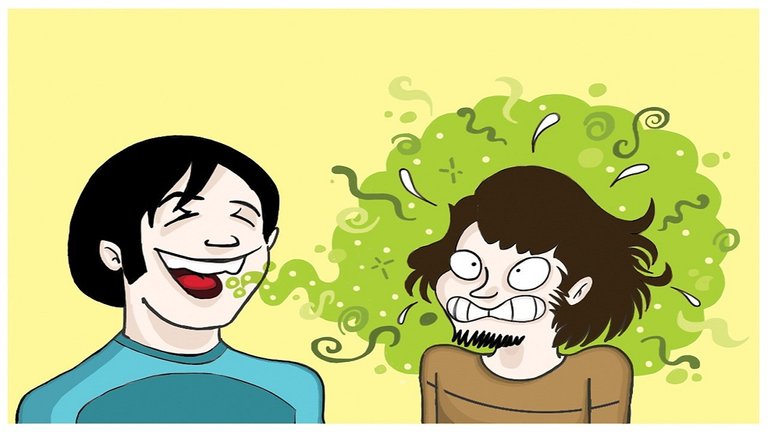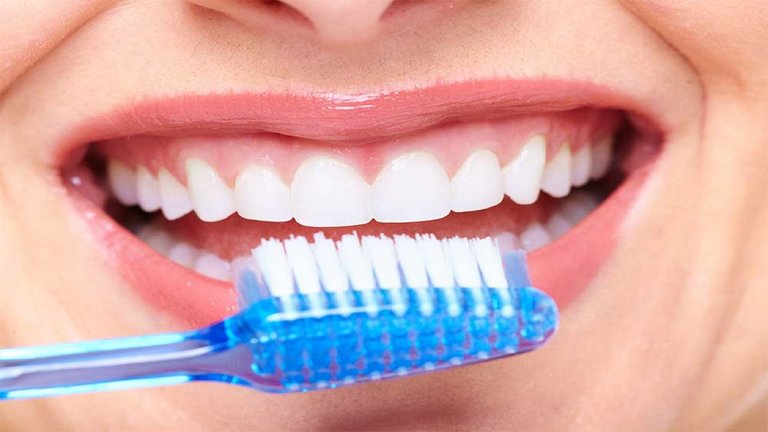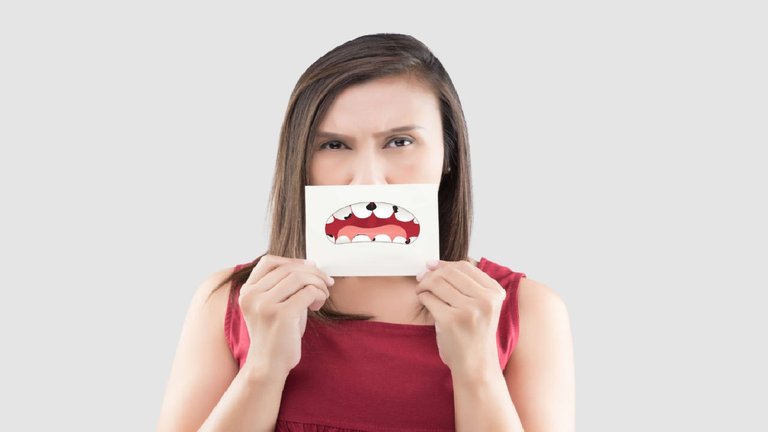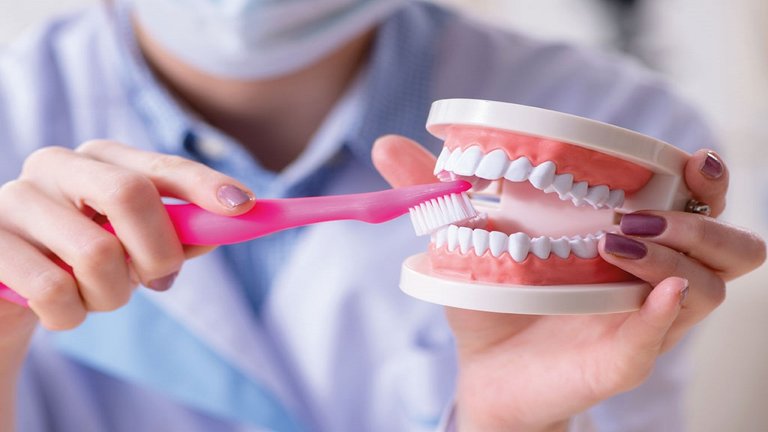
Saludos, comunidad. Hoy quiero hablarles de un tema muy común en la consulta odontológica, La halitosis (mal aliento) es una pregunta que normalmente me hacen los pacientes, ya que no se explican Por qué presentan está condición, si se cepillan "correctamente".
Primero que todo debemos entender que el cepillado, es un tratamiento que impide que las bacterias se proliferen en la cavidad bucal. Muchos pacientes me indican que se cepillan de dos a tres veces al día, pero de igual manera presentan halitosis. En la mayoría de los casos, si una personas tiene presencia de caries en la cavidad bucal, es normal que este tenga mal aliento, esto quiere decir que el efecto del cepillado será: impedir el nacimiento de las caries o su aumento de tamaño.
Greetings, community. Today I want to talk to you about a very common topic in the dental office, halitosis (bad breath) is a question that patients usually ask me, because they do not explain why they have this condition, if they brush "correctly".
First of all, we must understand that brushing is a treatment that prevents bacteria from proliferating in the oral cavity. Many patients tell me that they brush two to three times a day, but they still have halitosis. In most cases, if a person has caries in the oral cavity, it is normal to have bad breath, this means that the effect of brushing will be: to prevent the birth of caries or its increase in size.

¿Si me cepillo Por qué tengo caries?
Bueno en este caso hay dos opciones simples, la primera es que no se realizan una buena técnica del cepillado, y al ser deficiente las bacterias encuentran dónde alojarse. Este caso es normal ya que los padres de la actual generación, no tienen los conocimientos necesarios sobre el cepillado. Por lo tanto es de suma importancia, que al asistir al odontólogo, le expresemos la necesidad de aprender a realizar un cepillado correcto.
La segunda opción son las caries hereditarias. Quiero decir con esto, que algunas personas son más propensas a las caries, sin explicación alguna, ya que si se está cumpliendo con las técnicas de higiene bucal, en estos casos se investigan sus antecedentes familiares, y si los padres indican que han tenido muchas caries a lo largo de los años, quiere decir que es un factor hereditario. es por eso que es importante ir al odontólogo infantil, ya que al identificar el origen de las caries se puede atacar y prevenir. una persona con tendencia a generar muchas caries, se debe tener una técnica de cepillado perfecta y utilizar enjuage bucal constantemente.
¿If I brush, why do I have cavities?
Well in this case there are two simple options, the first one is that they do not perform a good brushing technique, and being deficient the bacteria find a place to stay. This case is normal because the parents of the current generation do not have the necessary knowledge about brushing. Therefore, it is of utmost importance that when we go to the dentist, we express the need to learn how to brush properly.
The second option is hereditary caries. I mean by this, that some people are more prone to cavities, without any explanation, because if you are complying with the techniques of oral hygiene, in these cases their family history is investigated, and if parents indicate that they have had many cavities over the years, it means that it is a hereditary factor. that is why it is important to go to the dentist for children, because by identifying the origin of the cavities can be attacked and prevented. a person with a tendency to generate many cavities, you must have a perfect brushing technique and use mouthwash constantly.

En la actualidad los odontólogos realizamos campañas de prevención, Para evitar este tipo de casos. no se deben normalizar las caries, en estos últimos años he visto como personas con la posibilidad de ir al odontólogo, prefieren vivir con la bacterias y el mal aliento sin problema algun; al vivir día a día con la caries y el mal aliento, ellos y sus familiares se acostumbran al olor de la cavidad bucal.
Debemos entender que los dientes tienen funciones muy importantes, no solo en la cavidad bucal sino en todo el resto de la cara. es necesario que todos los dientes se encuentren en boca y en buen estado, para realizar sus funciones de manera adecuada.
To avoid this type of cases, caries should not be normalized, in recent years I have seen how people with the possibility of going to the dentist, prefer to live with bacteria and bad breath without any problem; living day to day with caries and bad breath, they and their families get used to the smell of the oral cavity.
We must understand that teeth have very important functions, not only in the oral cavity but also in the rest of the face. It is necessary that all teeth are in the mouth and in good condition, to perform their functions properly.

¿Cuántas veces al año debo ir al odontólogo?
Lo recomendable es ir al odontólogo cada tres meses y realizarse limpieza dental, esto ayuda mucho ya que los odontólogos tenemos instrumentos especiales para evitar la proliferación de bacterias. Igualmente es importante ya que se hace revisión constante de los dientes, en dado caso que se presente una carie, se ataca a tiempo cuando está en su primera fase.
La salud bucal es importante, espero con este escrito crear un poco de consiencia y lograr prevenir muchas caries. Gracias por leer este artículo ¡Hasta la próxima!
¿How many times a year should I go to the dentist?
It is advisable to go to the dentist every three months and have your teeth cleaned, this helps a lot because dentists have special instruments to prevent the proliferation of bacteria. It is also important to constantly check your teeth, in case a cavity appears, it is attacked in time when it is in its first stage.
Oral health is important, I hope with this writing to create a little awareness and achieve prevent many cavities. Thank you for reading this article. See you next time!


- La portada de esta publicación fue realizada en canva en su versión gratuita.
The cover of this publication was made in canva in its free version.
- El texto ha sido traducido por Deepl en su versión gratuita
The text has been translated by Deepl in its free version.
Buen post y muy buena informacion, gracias por compartirla con nosotros, saludos :)
Congratulations @adamcero! You have completed the following achievement on the Hive blockchain and have been rewarded with new badge(s):
Your next target is to reach 200 upvotes.
You can view your badges on your board and compare yourself to others in the Ranking
If you no longer want to receive notifications, reply to this comment with the word
STOPTo support your work, I also upvoted your post!
Check out the last post from @hivebuzz:
Support the HiveBuzz project. Vote for our proposal!